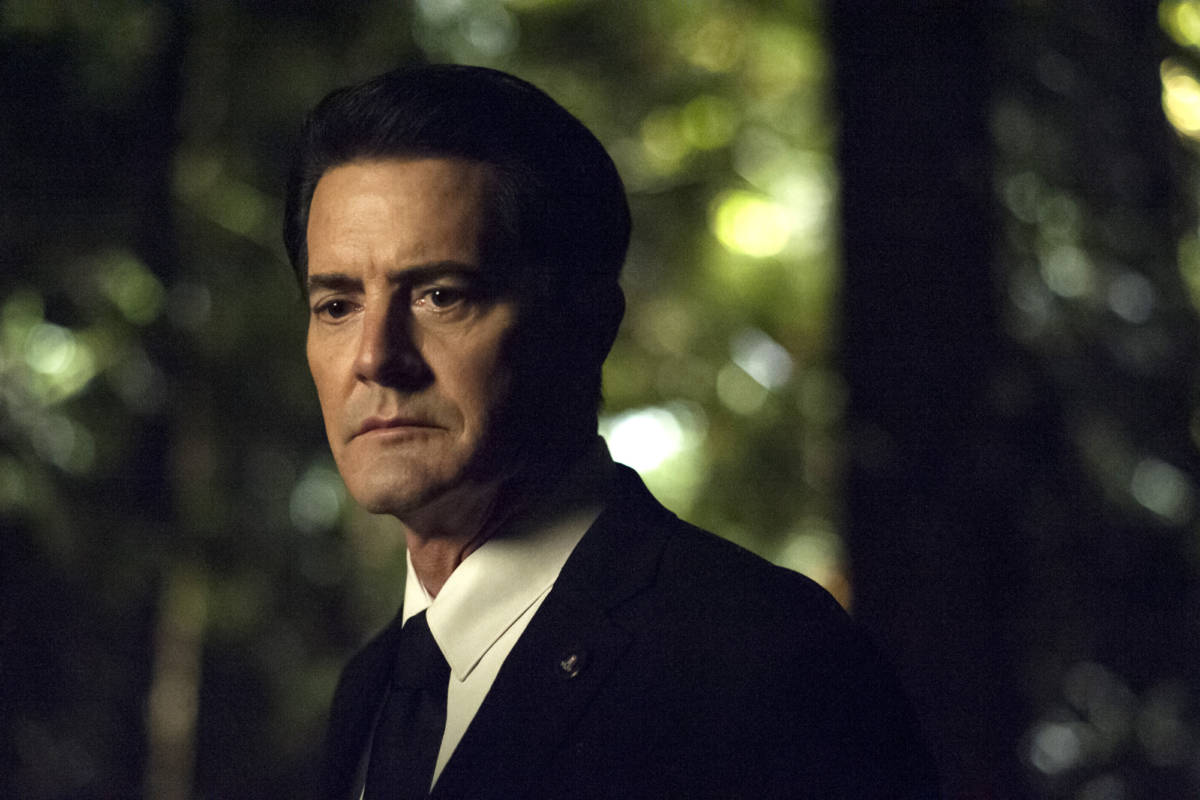I am a victim of sexual abuse. It took me almost seven years to be able to admit this out loud to anyone. I am also a huge fan of Twin Peaks, and The Return has made me feel things no other show ever has. Joy, sorrow, horror – often all in the same episode. There’s truly no other show like it out there right now.
Both Twin Peaks and now The Return have offered commentary on abuse and trauma, and this new season has really struck a chord with me. So setting aside all theories of parallel realities and dream worlds, here is my little interpretation of some of the elements we’ve seen throughout the original run and The Return.
The past dictates the future, and The Return shows us this through both the characters we fell in love with 25 years ago and new characters like Diane. We see Shelly, 25 years later, still falling for the wrong men. We see Diane, traumatized by what happened to her. On the other side of the coin, we also see Bobby, who has gotten his act together and is making the memory of his father proud. We see Ed and Norma, finally getting their happy ending.
Twin Peaks is certainly multi-layered, emotionally and thematically. There has always been somewhat of a duality in Twin Peaks (and in most of Lynch’s work). On one side Twin Peaks deals with very real and heavy subject matter. The all too real death and life of Laura Palmer has always been front and centre. Laura is the one. Laura is a victim of repeated rape and abuse perpetrated by her father. She does what a lot of victims do. Acting out sexually, resorting to drugs. She feels too much shame and guilt to reach out to anyone. Sadly, this is a story all too real in the world we live in.
On the other side, we have the supernatural elements, the mystery, the iconic imagery we all know and love. Lynch being Lynch, this tragic tale of a girl who was abused by her father for years is told with a seemingly supernatural twist.
In the original run, Albert proposes: “Maybe that’s all “Bob” is. The evil that men do. Maybe it doesn’t matter what we call it.” In Twin Peaks, the mystical side (while very enjoyable and gorgeously absurd) has often felt like a way to explain the horrors people are capable of. Laura’s father Leland was abused as a boy, and then later he became the abuser himself, which unfortunately often happens in real life. Bob could almost feel like a metaphor for this devastating cycle of trauma.
In The Return, there is also great weight put on the idea of returning home and being complete again in safe havens. In Part 17, Cooper goes into the past to the night Laura gets murdered by her own father in the original run. When he leads Laura away to save her, I cried. It’s a beautiful scene on its own and for everyone who has loved Laura Palmer these 25 years, but for me, it had a huge impact. I think everyone who has been through something horrible wishes that someone would just come in at the right moment and save you.
“Who I was, I will never be again. Who I could have been, I will never have the chance” Eddie Vedder sings on stage at the Roadhouse in Part 16. His words strike a chord with me as a victim of abuse, and I’m sure many others can relate. Sadly, in real life, there is no Dale Cooper to bend space and time to undo what has happened to you. It is something you’ll have to carry with you for the rest of your life; it will shape you in many ways. And who you could have been, you will never have the chance to become. Once again – the past dictates the future.
However, no one is defined by their abuse or their past. If you are reading this as a survivor of abuse and the Twin Peaks finale had a similar impact on you too, remember that even though you will have to carry this memory with you, there is still so much that makes life worth living. If you are struggling, please seek help, confide in a loved one, or even reach out to someone online. It can get better. You might never be the person you could have been, but that does not mean you can’t be a wonderful happy person despite it all.
Some of the coverage you find on Cultured Vultures contains affiliate links, which provide us with small commissions based on purchases made from visiting our site. We cover gaming news, movie reviews, wrestling and much more.



